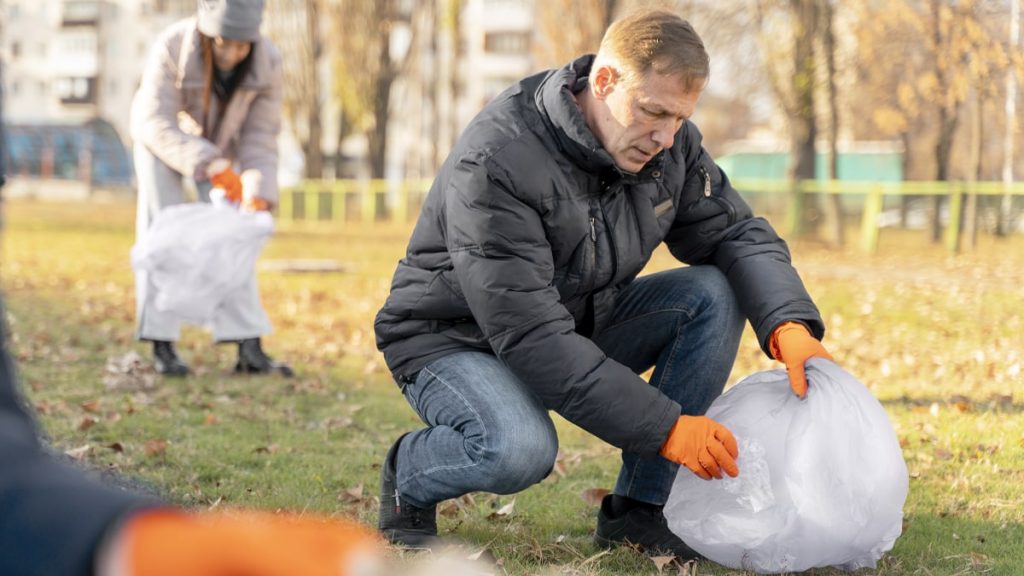If you’ve wondered why folks seem just a bit irritated around you but don’t know why, we’ve got news. It’s not always the big things; sometimes, it’s the little habits we hardly notice about ourselves. Let’s dive into 14 common behaviors secretly getting on everyone’s nerves. Trust us, it’s eye-opening!
Delayed RSVPs
A late RSVP to an event isn’t just about delaying your decision—it’s seen as overlooking the host’s efforts and complicating their planning process. It can disrupt the entire event organization, affecting your standing for future invites. Promptness shows respect and appreciation for the invitation and the work involved in hosting.
Leaving the Toilet Seat Up
Leaving the toilet seat up in a shared bathroom isn’t just a faux pas; it’s a breach of common courtesy that can lead to inconvenience and even accidents for the next person. This oversight necessitates unnecessary contact with the seat and is also seen as a lapse in sanitary practice.
Spitting in Public
Once, spitting in public was okay, with the spittoon gracing venues from pubs to trains in the 19th century. Fast forward, the act has lost social acceptance and is now deemed disrespectful and unhygienic. We’ve left this behavior in the past thanks to changing attitudes towards public health and manners.
Chewing Gum
Chewing gum with your mouth open, complete with smacking and popping sounds, isn’t just a personal choice but a public annoyance. Especially aggravating for those with misophonia; audible chewing isn’t polite. Practicing discreet gum etiquette, like keeping your mouth closed, ensures you keep the peace and avoid irritating those nearby.
Nail Biting
Nail biting, a habit embraced by 30% of people, as noted by UCLA Health, often stems from stress or boredom. Yet, in public, it can irk those around us. Beyond the personal toll, it’s perceived as unhygienic and harmful, casting a shadow over its widespread nature with a negative veneer.
Talking at the Movies
Attention, chatty theatre-goers! Talking during a movie is not just a minor nuisance; it significantly disrupts the shared viewing experience, turning what should be a captivating escape into a series of frustrating interruptions. Spoiling the film for everyone else in the room? No wonder this behavior is regarded as disrespectful.
Hogging Express Checkout Lanes
Shoppers ignoring the “10 items or less” rule in express checkout lanes isn’t just bending the rules—it’s breaking the unwritten social contract of grocery etiquette. This oversight not only delays others eagerly awaiting their turn but also broadcasts a disregard for the convenience the express lane is designed to provide.
Loud Calls at the Gym
This may not be the most annoying behavior on this list, but it irks many people. Speaking loudly on the phone at the gym can be disruptive to others seeking a meditative space and is seen as lacking awareness of gym etiquette. Doing so often affects the gym environment negatively.
Picking Your Teeth in Public
Publicly picking your teeth isn’t just a personal grooming habit but a visual and social discomfort for those around you. Unsightly and impolite, this act can quickly become an annoyance in social settings. Etiquette experts advise a more courteous route: excusing yourself to address the issue privately in the bathroom.
Loud Music
Blasting loud music through headphones in public spaces isn’t just about enjoying your tunes—it inadvertently invades others’ auditory space. This disregard for public etiquette can disrupt those seeking peace or concentration. Instead, being mindful of your volume demonstrates respect for shared environments, ensuring everyone’s communal space remains pleasant and considerate.
Constant Sniffing
Constant sniffing, often chosen over the brief disturbance of blowing one’s nose, can paradoxically become more bothersome to those nearby. It tests the patience of others and is viewed as overlooking basic hygiene practices. Addressing the issue discreetly and promptly is appreciated for maintaining a considerate and comfortable shared space.
Not Picking Up After Yourself
Failing to clean up after yourself in shared spaces isn’t just a minor oversight; it directly reflects your consideration for others and personal habits. Such neglect can significantly irk those who share your environment. Maintaining cleanliness isn’t just about personal responsibility but showing respect and care for everyone’s communal well-being.
Not Replacing Toilet Paper
If you finished the toilet roll, replace it. It’s a hallmark of mindfulness and respect in shared spaces. Likewise, failure to do so is another trivial action with some big implications. Overlooking this basic courtesy doesn’t just inconvenience the next person; it sends a message about your consideration for others.
Abruptly Stopping Mid-walk
Abruptly stopping while walking, particularly in crowded areas, isn’t just a personal pause—it can create a domino effect of inconvenience or even accidents for those trailing behind you. This lapse in spatial awareness frustrates others navigating the same space. Being mindful of your surroundings and movements in public is crucial.



